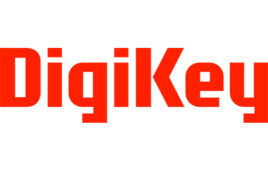by Leland Teschler, Executive Editor
The U.S. Treasury recently announced rules meant to curb so-called tax inversion deals. An inversion is where a U.S. company merges with a foreign firm, then locates the headquarters of the resulting entity offshore as a way to dodge U.S. corporate taxes. For example, that’s why U.S. industrial giant Eaton Corp. is now headquartered in Ireland. Judging by the belly aching of companies that go through inversions, you might think that putting their headquarters outside the U.S. is the only way corporations can make any money these days.
But there is now an assertion that the profits of U.S. companies are too high. In fact, their profits are high enough to be a detriment to the overall economy. The interesting thing about this assertion is that it doesn’t come from a politician trying to get votes.
The claim that U.S. profits are too high comes from The Economist magazine. It says that profits have risen in most rich countries over the past decade, but the highest increase has been for American firms. Simultaneously, industries have become increasingly concentrated as big firms have bought out smaller competitors. The result is that the fruits of economic growth benefit an ever tightening circle of a lucky few.

The Economist bases its claims on data from the U.S. Bureau of Economic Analysis and corporate performance analytics from McKinsey & Co. These reveal profits at near-record highs relative to gross domestic product and free cash flow. Return on capital is at near-record levels as well, The Economist says. And though U.S. companies now make a fifth of their profits abroad, their return-on-equity is 40% higher on their operations in the U.S.
You might think high profits are something to be celebrated, but The Economist says high profits across a whole economy can be a sign of sickness. The sickness the magazine refers to is a lessening of competition. When there’s less competition, companies have little incentive to cut prices or boost the pay of super-productive employees. By and large, that seems to be the case: The Economist says in a market the size of the U.S., prices should be lower than in other industrialized economies. Generally speaking, they aren’t. And the U.S. Bureau of Labor statistics says wages for all industries other than investment bankers have risen only 21% (adjusted for inflation) in the past 25 years.
The concentration of profits is particularly high in manufacturing. The Economist< reports that just four U.S. manufacturing firms are now responsible for about 44% of the total annual U.S. manufacturing revenue. The only other industry that has this kind of revenue concentrated in so few companies is IT/telecom/media.
Which bring us back to the caterwauling that arose when rules to curtail tax inversions went into place. Companies that claim they need to reside offshore to make a decent return certainly seem to have a lot of money to spend—on their own executives. That is a conclusion you might come to from the reporting of Michelle Leder, an SEC filings expert. She points out that several tax inversion companies are disclosing hefty allowances for their top executives to live overseas in places like Ireland and Switzerland. She says oil driller Transocean Ltd., for example, spent over $1.6M last year on housing allowances and related expenses for its top executives. Transocean CEO Jeremy Thigpen got $90,722 in housing expenses and $136,693 in education expenses. The company says its executive management team is based in Switzerland—interesting, seeing that Thigpen is on the board of directors for the Boys & Girls Clubs of Greater Houston.
In this era of a “rigged” economy, it is nice to know that at least some people are making out alright.
[email protected]
On Twitter @DW_LeeTeschler
Filed Under: Commentaries • insights • Technical thinking





Tell Us What You Think!